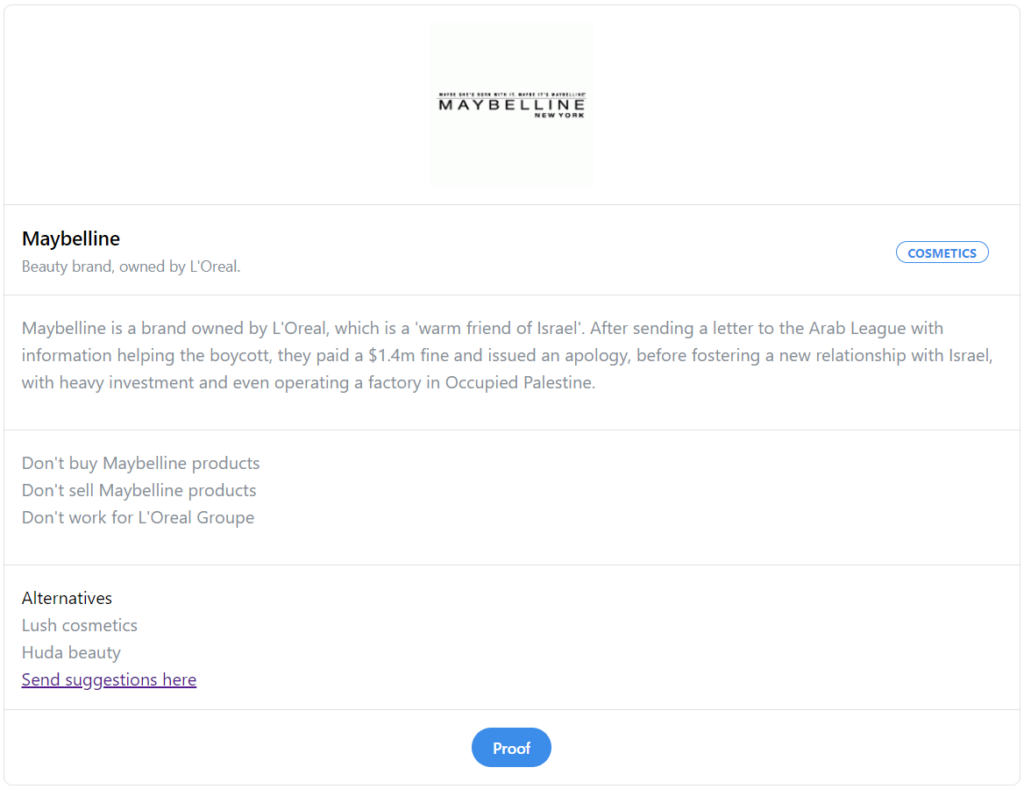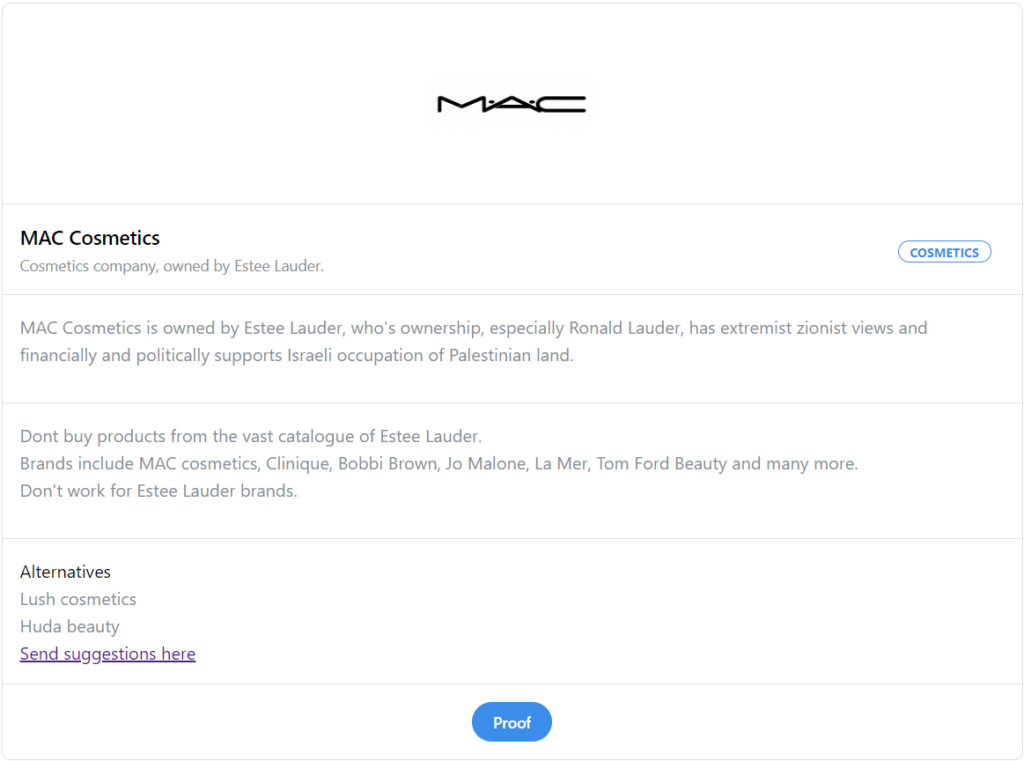In the realm of beauty and cosmetics, conscientious consumers increasingly scrutinize the ethical and moral stances of the brands they support. Within this landscape, certain makeup brands have faced intense scrutiny due to their connections with Israeli occupation in Palestine.
This scrutiny has led to calls for boycotts and alternative choices. Understanding these affiliations and exploring options for socially-aware consumers sheds light on the intersection of consumerism, geopolitics, and ethical choices in the beauty industry.
Daftar isi:
1. Maybelline

L’Oreal, the parent company of Maybelline, faced controversy due to its relationship with Israel. After a fine and apology, they reinforced ties with Israel, even operating a factory in Occupied Palestine. As a protest against their associations, consumers are urged to avoid buying Maybelline products and not work for L’Oreal Groupe. Alternatives: Lush Cosmetics, Huda Beauty
2. L’Oreal

Similar to Maybelline, L’Oreal encountered backlash after re-establishing relations with Israel following a fine and apology. Consumers are encouraged to boycott L’Oreal products and refrain from associating with L’Oreal Groupe. Alternatives: Lush Cosmetics
3. MAC Cosmetics

Owned by Estee Lauder, MAC Cosmetics, among other brands, faces scrutiny due to the Lauder family’s support for the Israeli occupation. A boycott of Estee Lauder products, including MAC, Clinique, and more, is advised. Alternatives: Lush Cosmetics, Huda Beauty
Check Out: Sephora’s Support for Israel: Examining the Details
4. Clinique

Clinique, another Estee Lauder brand, falls under the umbrella of boycott due to the Lauder family’s ties to Israeli occupation. Alternatives: Lush Cosmetics, Huda Beauty
5. Garnier

Garnier, owned by L’Oreal, faced criticism after reinstating relations with Israel. Consumers are encouraged to avoid purchasing Garnier products and not work for L’Oreal Groupe. Alternatives: Supermarket own-brand products (e.g., Aldi, Lidl), Lush Cosmetics
6. Estee Lauder
The Lauder family, particularly Ronald Lauder, supports the Israeli occupation, prompting a boycott of Estee Lauder products. Alternatives: Lush Cosmetics, Huda Beauty, Unbranded oil-based perfumes, Sunnamusk
7. NYX Professional Makeup
NYX, under L’Oreal’s ownership, faced criticism for their renewed relationship with Israel. Alternatives: Lush Cosmetics
8. Urban Decay
Similar to other L’Oreal-owned brands, Urban Decay encountered controversy related to their association with Israel. Alternatives: Lush Cosmetics, Huda Beauty
9. Benefit Cosmetics
LVMH owner Bernard Arnault invests in Israeli companies, leading to a call for a boycott of Benefit Cosmetics. Alternatives: Lush Cosmetics, Huda Beauty
Explore More: A List of Israeli Products to Boycott
10. Too Faced
As part of Estee Lauder, Too Faced is boycotted due to the Lauder family’s support for Israeli occupation. Alternatives: Lush Cosmetics, Huda Beauty
The world of cosmetics and beauty isn’t just about trends and glamour; it also involves the ethical stance of the brands consumers choose to support. The call for boycotting makeup brands associated with Israeli occupation in Palestine reflects the growing trend of conscientious consumerism.
As the makeup industry evolves, the ethical considerations guiding consumer choices are increasingly becoming part of the discourse. Alternative options provide avenues for consumers to align their beauty routines with their ethical beliefs, highlighting the broader impact of individual choices within the beauty industry.
- Investigating Ferrero Rocher’s Support and Investment Stance on Israel
Does Ferrero Rocher support the Israeli Occupation of Palestine? The scrutiny surrounding the company’s supposed support is growing, particularly for…
- Exploring ASDA’s Interest and Support in Israel
Does ASDA support Israel by selling products sourced from Israeli settlements in Palestine? This raises concerns over human rights violations…
- Does Hershey Support Israel? A Deep Dive
Amid allegations of ties to Israel and Palestinian territories, Hershey faces controversy. Let’s delve into the upheaval, analyzing accusations, investigating…
- Luxury Companies Supporting Israel: A Deep Dive into Their Possible Connections
Are luxury companies, such as LVMH with its notable brands Hublot, TAG Heuer, and Tiffany & Co, supporting Israeli companies?…
